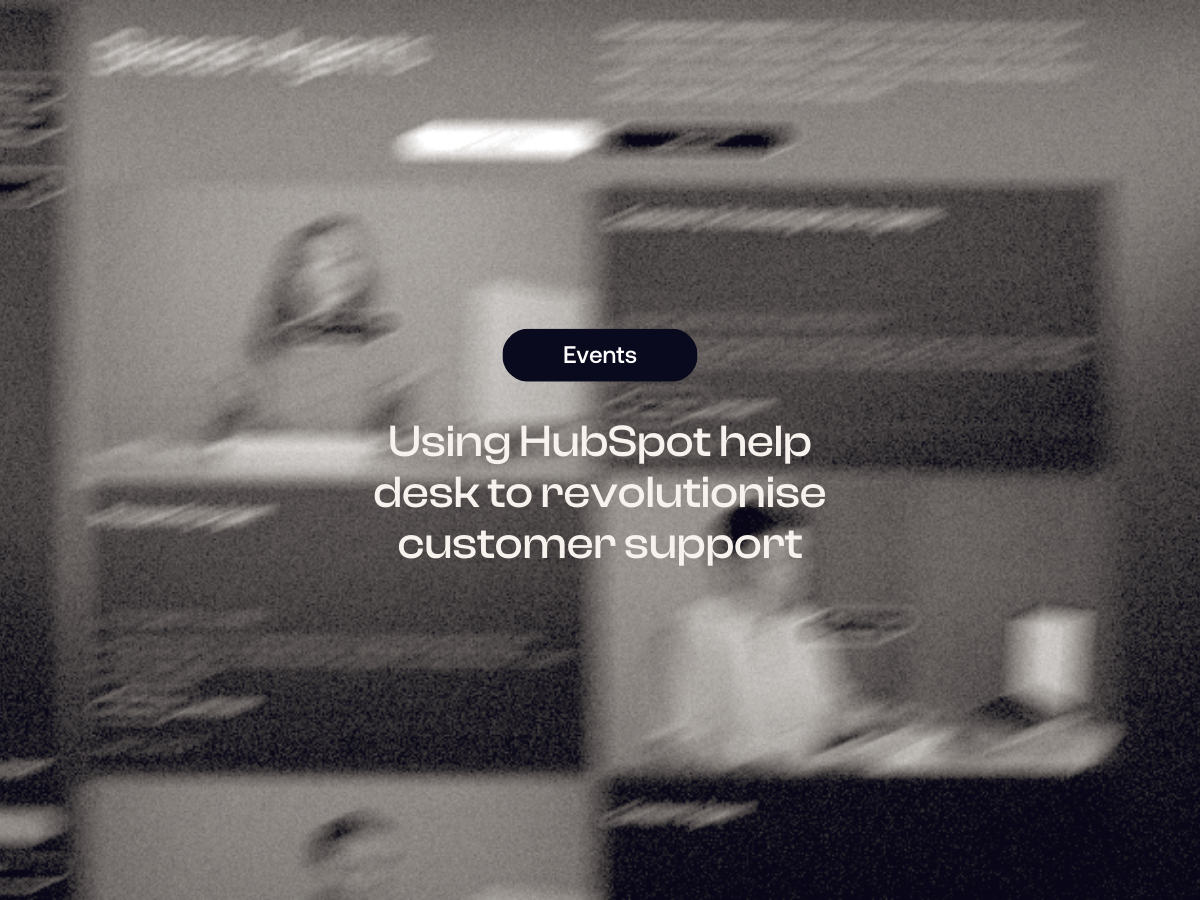Web hosting: What every website owner should know

Last updated: 14 January 2025
Being a website owner can be overwhelming. There’s all the technical jargon plus knowing what platform to use and how to sort out hosting.
Whether you're a business owner, marketer, or just curious, knowing the basics of web hosting can be useful. Let’s uncover some insights that could make a real difference to your online presence.
What is web hosting, really?
Web hosting is a service that allows your website to be accessible on the internet.
When you build a website, all those pages, images, and content need to live somewhere. That somewhere is a web server. A web server is a powerful computer designed to store websites and make them available 24/7.
Web hosting companies provide space on these servers for your website. It's not just about storage. Think of them as your website’s maintenance crew - they keep everything running, secure and online.
Different types of hosting services cater to various needs:
- Shared hosting: Multiple websites share the same server resources. It's cost-effective but can be slower if another site on the server gets a traffic spike.
- Virtual Private Server (VPS): Your site gets its own protected space on a server. This means better performance and flexibility and more control than shared hosting.
- Dedicated server: An entire server dedicated to your website. This is the most powerful option but also the most expensive.
- Cloud hosting: Your site is hosted across multiple servers, providing scalability and reliability.
- Managed hosting: Your site is managed entirely by a team of experts (like us!). They use special hosting to keep your website secure and speedy.
The Domain Name System (DNS): Your website's address book
Once you have a website, you want people to find it, right? That's where the Domain Name System (DNS) comes in. Think of DNS as a global address book for the internet.
When someone types your website address into their browser, DNS translates that human-readable address (like www.yourbusiness.com) into an IP address. An IP address is a series of numbers that computers use to identify each other on the network. This process happens in milliseconds, allowing visitors to reach your site quickly and easily.
Why regular updates matter
You've probably noticed your computer or phone asking for updates from time to time. Websites need updates too, but for slightly different reasons.
Regular updates to your website's software (like your content management system or plugins) are crucial for several reasons:
- They keep your site safe from potential attacks
- They make your site faster and more efficient
- They can add new features or fix bugs
Ignoring updates can leave your site vulnerable and potentially lead to a poor user experience. In worst-case scenarios, an outdated site could be hacked, leading to data breaches or your site being used to spread malware.
Many hosting providers can handle these updates for you, keeping your website current and secure, easily.
Content Delivery Networks: Speeding things up
A Content Delivery Network (CDN) has copies of your website stored all over the world. This helps visitors access it faster.
A CDN stores copies of your site on multiple servers around the world. When someone visits your site, they're served content from the server nearest to them, resulting in faster load times.
This is great if you have a global audience or your site has lots of images or videos. CDNs also provide an extra layer of security and can help your site handle traffic spikes more effectively.
Some hosting providers offer CDN services. Others can easily connect with third-party services like Cloudflare or Amazon CloudFront.
The always-on nature of web hosting
Web hosting is an always-on service. Unlike many things we use daily that can be switched off when not in use, a website needs to be available 24/7.
You might think, "But people aren’t on my website at 3am, so can't I just turn it off then?" The reality is, the internet is global. Your 3am might be someone else's 3pm. Plus, search engines like Google regularly crawl websites at all hours to index content.
Pausing your website hosting isn't like hitting a pause button. It takes your site completely offline, which can hurt your Google rankings and frustrate customers. Plus, it's often tricky to get everything working again when you restart.
This is why hosting is typically billed as a continuous service, much like a subscription. It's not just about the storage space; it's about the continuous management, security, and availability of your site.
The true cost of 'free' hosting
You might have come across offers for free web hosting. While it can be tempting, especially for small projects or beginners, it often comes with significant drawbacks:
- Limited resources: Less storage space and bandwidth, which can slow down your site
- Lack of control: Limited ability to customise your site or install necessary tools
- Ads: Your site might display ads you have no control over
- Poor reliability: Your site might experience more downtime
- Limited support: If something goes wrong, you might be on your own to fix it
Remember, if you're not paying for the product, you (or your data) might be the product. Free hosting providers often monetise their services through ads or by selling user data.
Integrated hosting solutions: When your platform is your host
If you are just starting or want easy solutions, try platforms like HubSpot CMS, BigCommerce, or Shopify. These platforms offer an all-in-one solution where your website builder, e-commerce tools, and hosting are bundled together. This is a good choice if you are not good with technology. It can also help your business grow quickly without worrying about servers.
HubSpot CMS
HubSpot's Content Management System (CMS) combines website hosting with powerful marketing tools, customer relationship management (CRM), and analytics.
Advantages of using HubSpot CMS include:
- All-in-one marketing platform
- Built-in SEO tools
- Personalisation features
- Integrated with HubSpot's CRM for better lead tracking
BigCommerce and Shopify
These e-commerce platforms provide hosting as part of their service.
Benefits include:
- Seamless integration between your store and hosting
- Built-in security features and PCI (Payment Card Industry) compliance for handling payments
- Automatic updates and backups
- Scalability to handle traffic spikes during busy periods
Going with these platforms can be more expensive than using traditional hosting. They can provide more value, however, through the tools they offer and how easy they are to use. However, they may offer less flexibility than a self-hosted solution, so it's important to consider your specific needs.
Choosing the right hosting solution
Selecting the right hosting solution depends on various factors:
- Your technical expertise: If you're comfortable managing servers, a VPS or dedicated server might be suitable. If not, managed hosting or an integrated platform could be better.
- Your budget: Hosting costs can range from a few dollars a month to hundreds or even thousands for high-traffic sites.
- Your website's purpose: An e-commerce site will have different hosting needs compared to a simple blog.
- Expected traffic: Higher traffic requires more robust hosting solutions.
- Growth plans: Consider a solution that can scale with your business.
The real impact of the wrong hosting
You might think web hosting is just another IT expense, but the wrong choice can seriously impact your bottom line.
If your website takes more than three seconds to load, you'll lose 53% of your mobile visitors. In fact, just a one-second delay in page load time can reduce conversions by 7%.
For an e-commerce site making $100,000 per day, that single second could cost you $2.5 million in lost sales every year. And here in Australia, where internet speeds can be patchy, every millisecond counts.
Speed isn't the only risk. Security breaches from poor hosting can destroy a business. In Australia, these breaches cost companies $4.5 million on average in 2023. Even worse, 60% of small businesses close within six months of an attack.
We've seen this firsthand. One of our clients was losing thousands in sales because of slow page loads before switching to managed hosting. Their site was taking 8.3 seconds to load - an eternity in digital terms. After moving to managed hosting, their load time dropped to under 2 seconds, and their conversion rate jumped by 45%.
The right hosting can prevent all these problems. Think of it like buying a car - going cheap might save money now, but will cost more in repairs later. Good hosting is an investment in your business, not an expense.
Web hosting 101
Knowing the basics of web hosting will help you make better choices for your website. It will also help you talk more easily with tech experts.
Your hosting choice can significantly impact your website's performance, security, and ability to grow with your business. It's not just about finding a place for your website to live - it's about creating a strong foundation for your online presence.
At Refuel, we're always here to help you navigate the sometimes confusing world of web technology. We manage WordPress websites for both new and existing sites. Whether you're just starting or looking to switch hosts, we're here to help.






